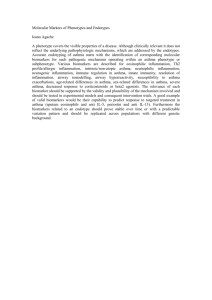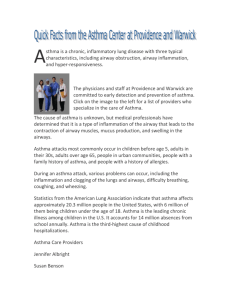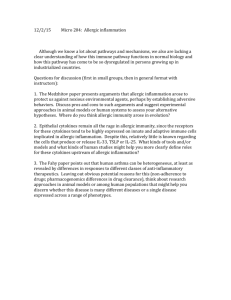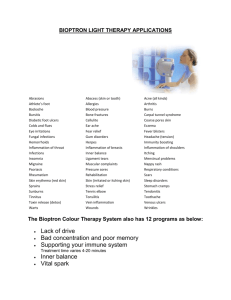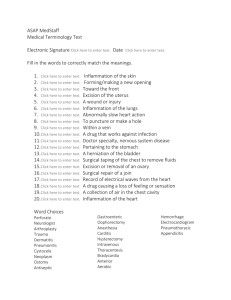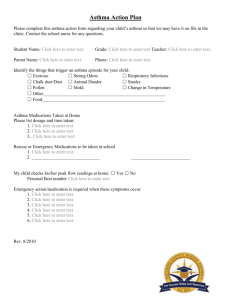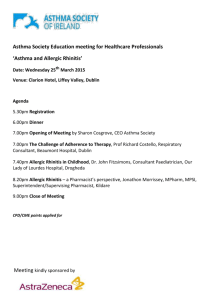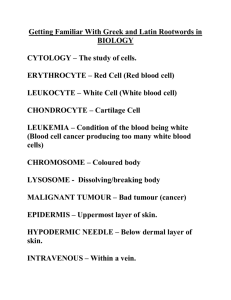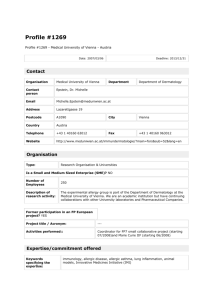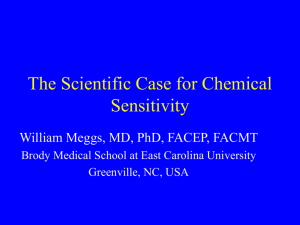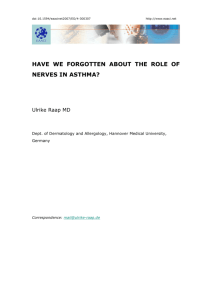STAT Decoy Oligonucleotide Administration Decreases Airway
advertisement
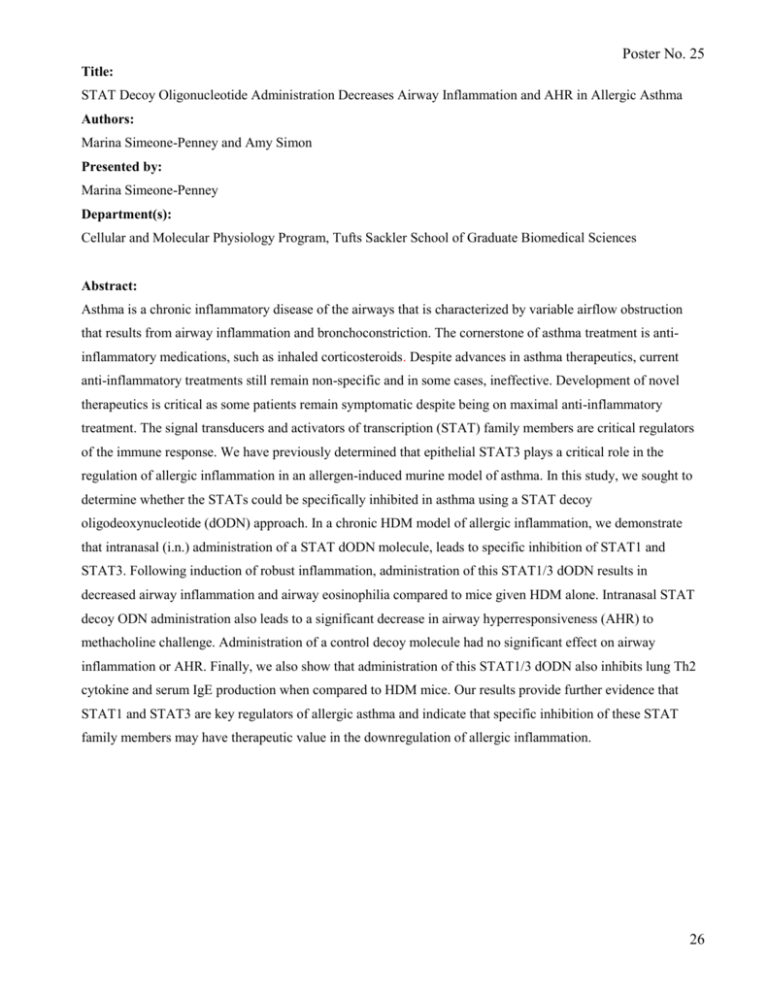
Poster No. 25 Title: STAT Decoy Oligonucleotide Administration Decreases Airway Inflammation and AHR in Allergic Asthma Authors: Marina Simeone-Penney and Amy Simon Presented by: Marina Simeone-Penney Department(s): Cellular and Molecular Physiology Program, Tufts Sackler School of Graduate Biomedical Sciences Abstract: Asthma is a chronic inflammatory disease of the airways that is characterized by variable airflow obstruction that results from airway inflammation and bronchoconstriction. The cornerstone of asthma treatment is antiinflammatory medications, such as inhaled corticosteroids. Despite advances in asthma therapeutics, current anti-inflammatory treatments still remain non-specific and in some cases, ineffective. Development of novel therapeutics is critical as some patients remain symptomatic despite being on maximal anti-inflammatory treatment. The signal transducers and activators of transcription (STAT) family members are critical regulators of the immune response. We have previously determined that epithelial STAT3 plays a critical role in the regulation of allergic inflammation in an allergen-induced murine model of asthma. In this study, we sought to determine whether the STATs could be specifically inhibited in asthma using a STAT decoy oligodeoxynucleotide (dODN) approach. In a chronic HDM model of allergic inflammation, we demonstrate that intranasal (i.n.) administration of a STAT dODN molecule, leads to specific inhibition of STAT1 and STAT3. Following induction of robust inflammation, administration of this STAT1/3 dODN results in decreased airway inflammation and airway eosinophilia compared to mice given HDM alone. Intranasal STAT decoy ODN administration also leads to a significant decrease in airway hyperresponsiveness (AHR) to methacholine challenge. Administration of a control decoy molecule had no significant effect on airway inflammation or AHR. Finally, we also show that administration of this STAT1/3 dODN also inhibits lung Th2 cytokine and serum IgE production when compared to HDM mice. Our results provide further evidence that STAT1 and STAT3 are key regulators of allergic asthma and indicate that specific inhibition of these STAT family members may have therapeutic value in the downregulation of allergic inflammation. 26
